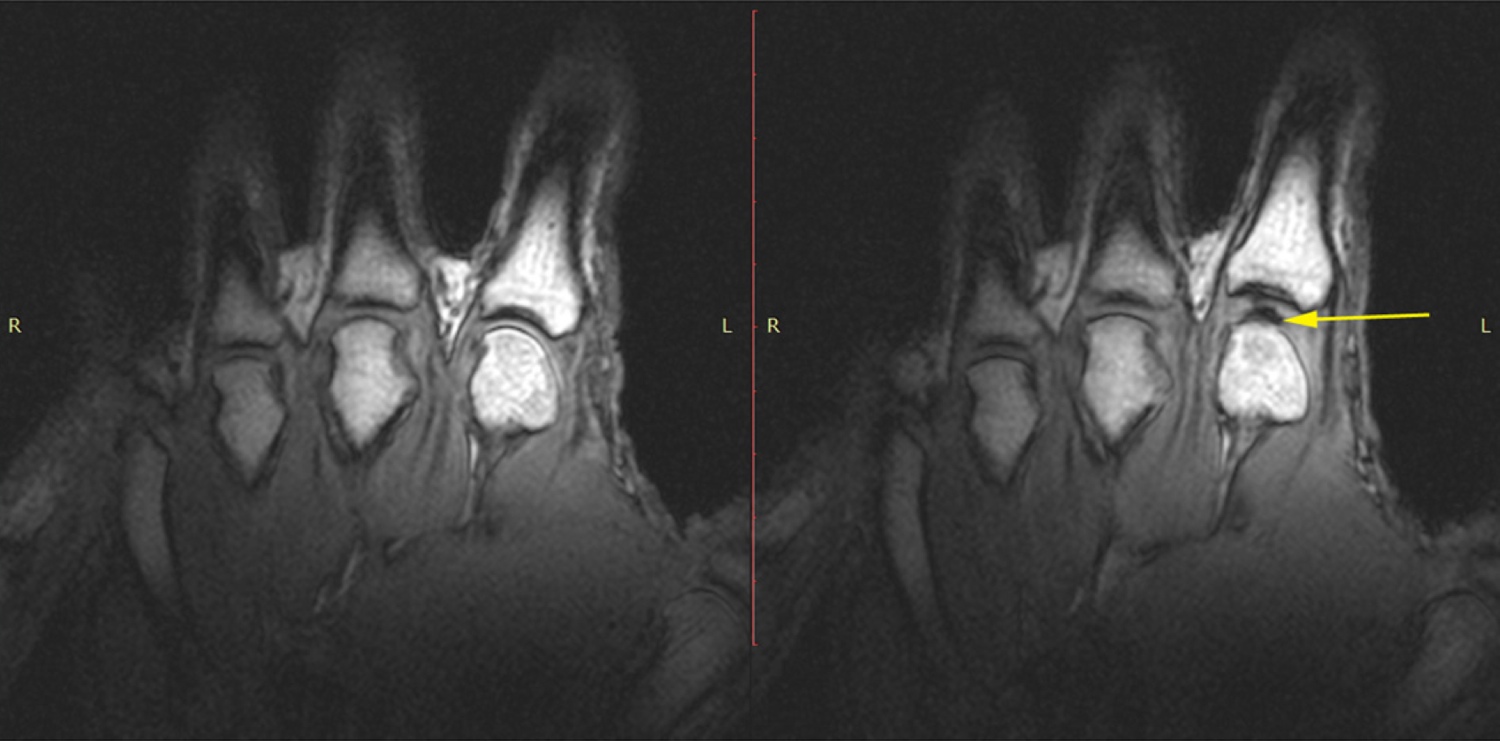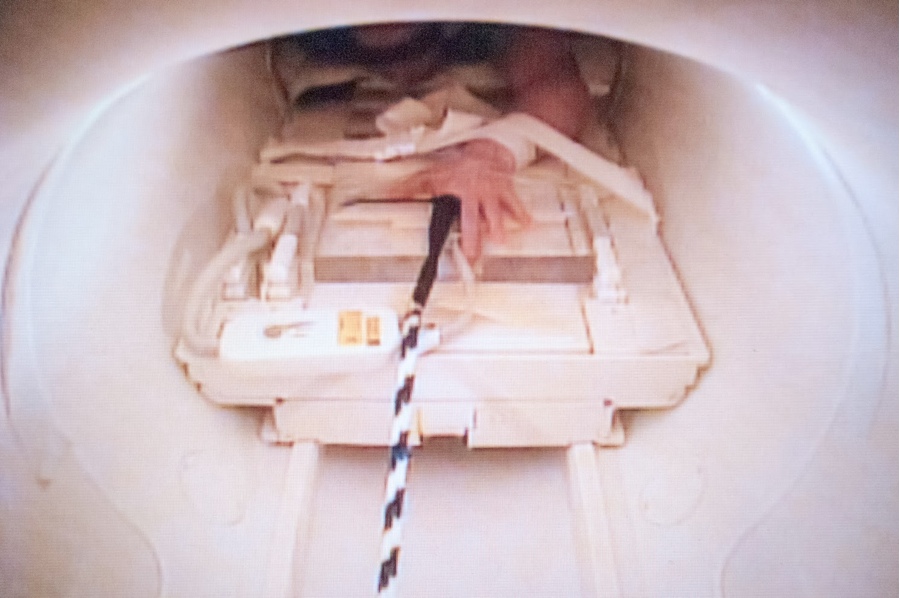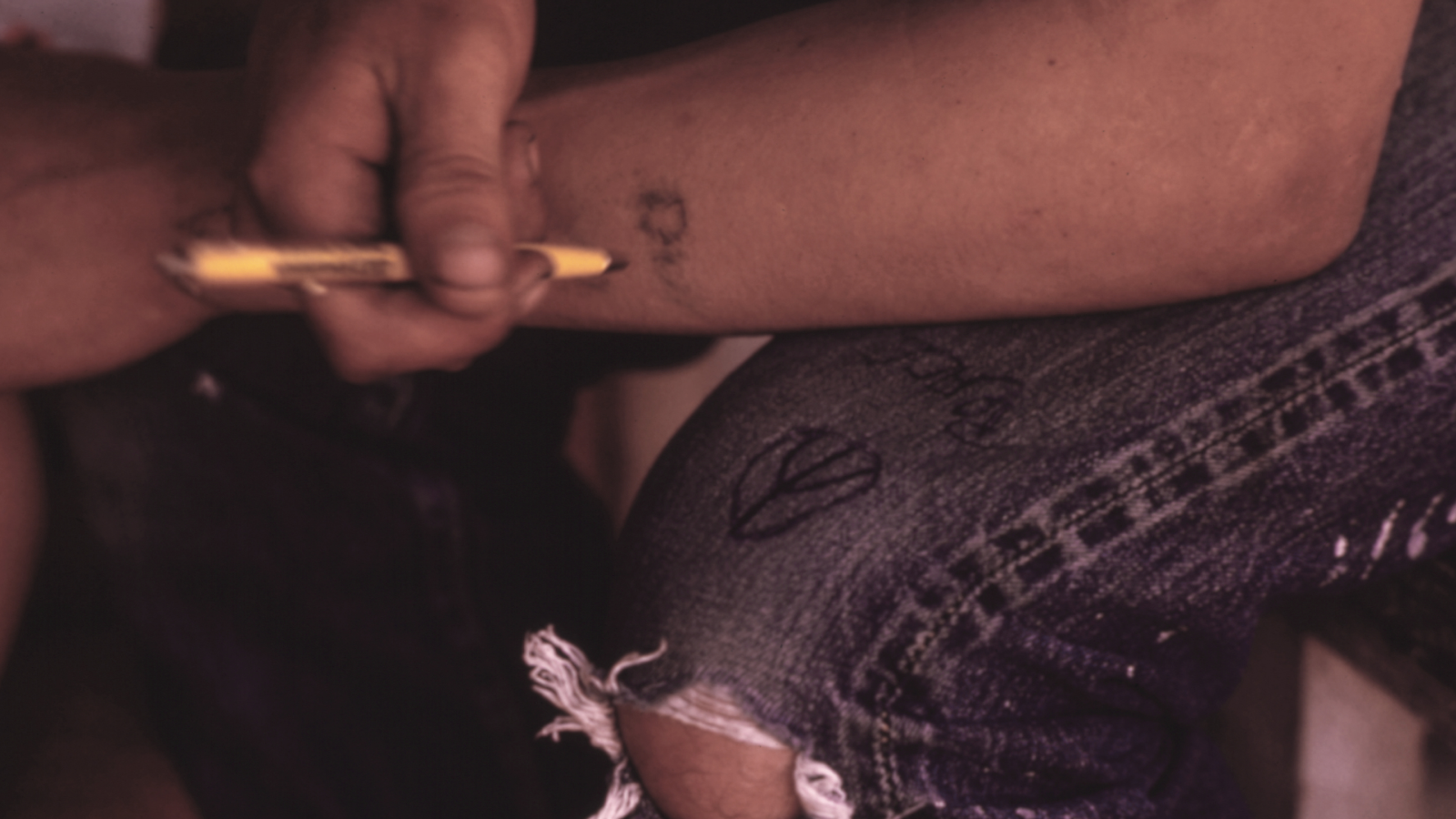Pop! Knuckle-Cracking Noise Finally Explained
What do you get when you combine the "Wayne Gretzky of knuckle cracking" with a magnetic resonance imaging (MRI) machine? The answer to a very old question, it turns out.
By using MRI to video-record knuckle cracking in action, researchers have discovered that the unsettling "pop" made by cracking one's knuckles results from the rapid creation of a cavity in the fluid inside the joints.
"It's a little bit like forming a vacuum," study researcher Greg Kawchuk, a professor of rehabilitation medicine at the University of Alberta in Canada, said in a statement. "As the joint surfaces suddenly separate, there is no more fluid available to fill the increasing joint volume, so a cavity is created, and that event is what's associated with the sound." [See MRI Video of Knuckle Cracking in Real-Time]
To discover this tidbit of anatomical weirdness, Kawchuk and his colleagues dreamed up what they call the "pull my finger" study. Chiropractor Jerome Fryer, of Nanaimo, Canada, got the ball rolling when he approached Kawchuck with a new hypothesis explaining why knuckle cracking makes a popping sound. Over the decades, researchers have speculated that pulling apart the finger joints creates or collapses bubbles in the joint fluid, and that perhaps one or the other could explain the noise.
Kawchuk and his team figured that with modern technology, they could just look inside the joint to see what was going on. Fortunately, Fryer is a champion knuckle cracker, Kawchuk said, comparing the chiropractor's talent with that of hockey great Gretzky.
Using MRI, the researchers recorded what happened inside Fryer's joint in real time as each of his fingers was pulled slowly until the joints cracked. The creation of a cavity in the synovial fluid (the fluid between the joints) made the sound, the researchers report today (April 15) in the journal PLOS ONE.
The results could add up to more than a bit of human body trivia, the research team said.
Get the world’s most fascinating discoveries delivered straight to your inbox.
"The ability to crack your knuckles could be related to joint health," said Kawchuk. Contrary to folk wisdom, studies have not found that cracking one's joints damages them, despite the strong forces involved. Joint cracking may thus be linked to joint health somehow, Kawchuk said.
"It may be that we can use this new discovery to see when joint problems begin long before symptoms start, which would give patients and clinicians the possibility of addressing joint problems before they begin," he said.
Follow Stephanie Pappas on Twitterand Google+. Follow us @livescience, Facebook& Google+. Original article on Live Science.

Stephanie Pappas is a contributing writer for Live Science, covering topics ranging from geoscience to archaeology to the human brain and behavior. She was previously a senior writer for Live Science but is now a freelancer based in Denver, Colorado, and regularly contributes to Scientific American and The Monitor, the monthly magazine of the American Psychological Association. Stephanie received a bachelor's degree in psychology from the University of South Carolina and a graduate certificate in science communication from the University of California, Santa Cruz.




